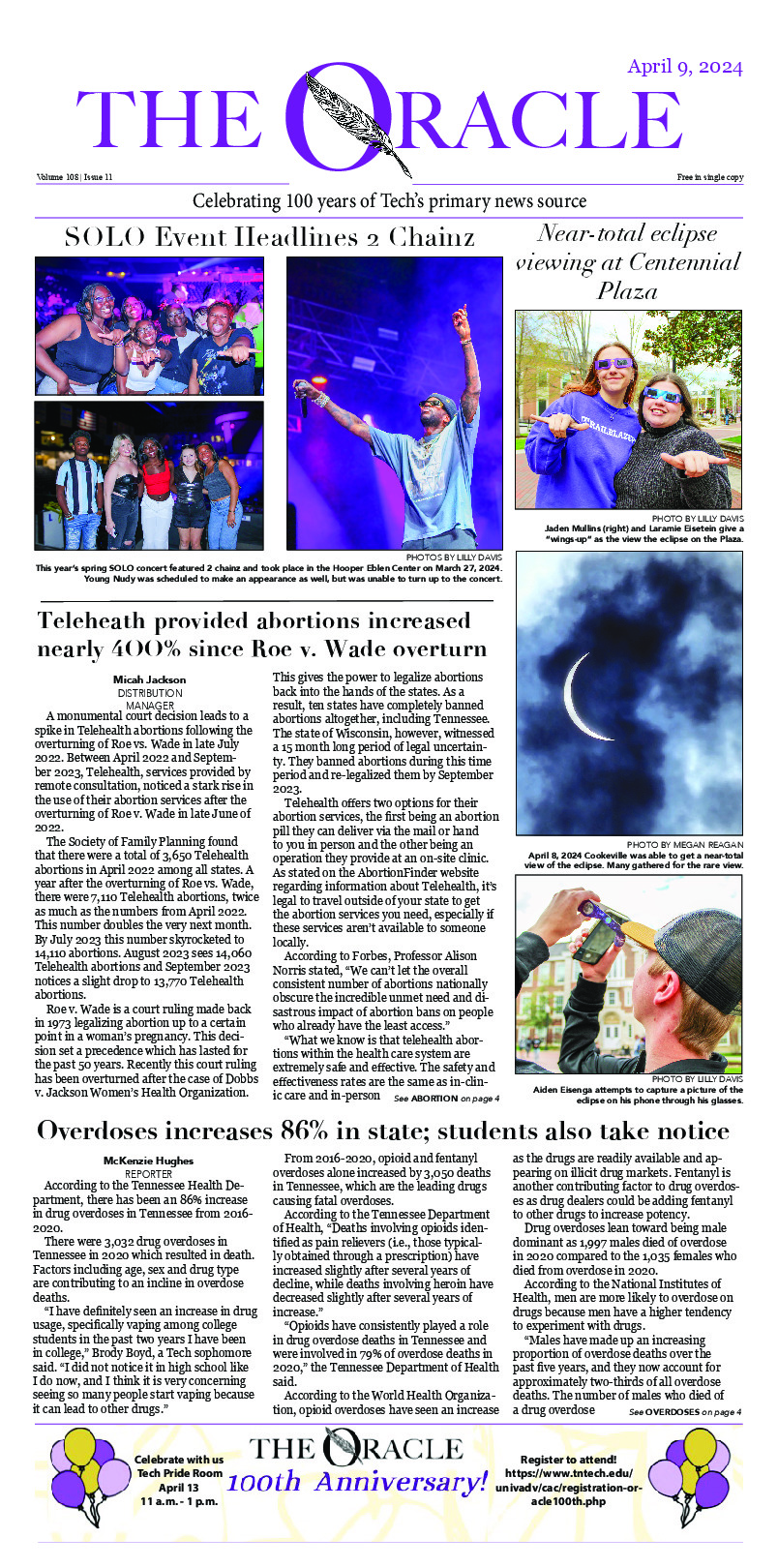Ben Wishart Junior Editor
Mental health is one of the most crucial and necessary attributes of which people ought to be most aware, especially amongst themselves. Yes, Mental Health Awareness Month is next month, but by no means does that warrant mental health only be observed, studied or given the light of day for only one month out of the year.
Mental health is not an easily definable term or condition that can be put into one clearly visible and explainable box for one person, rather it is a concept that must be analyzed by the individual to determine what mental health might look like to them. Mental health is also a constantly fluctuating state of mind that can change at any point in time based on whatever events may be conspiring at times in a person’s life.
Mental health includes, according to the Substance Abuse and Mental Health Services Administration (SAMHSA), “…our emotional, psychological, and social well-being. It affects how we think, feel, and act, and helps determine how we handle stress, relate to others, and make choices.”
People often treat mental health as one of the more sensitive topics of conversation to exist today, seeing as the delicate nature of mental illness can be triggering for those afflicted with such. Mental illnesses generally stem from two broad categories, Any Mental Illness (AMI) and Serious Mental Illness (SMI).
AMI, according to the National Institute of Mental Health (NIMH), is defined as, “a mental, behavioral, or emotional disorder. AMI can vary in impact, ranging from no impairment to mild, moderate, and even severe impairment.” They proceed on to define SMI as, “a mental, behavioral, or emotional disorder resulting in serious functional impairment, which substantially interferes with or limits one or more major life activities.” The clearest difference between AMI and SMI is the severity of which a mental illness may affect or disable cognitive or functional ability.
Mental illnesses are very common in the United States, according to the NIMH, more than one in five adults suffer from some form of mental illness, whether it be AMI or SMI. In 2021, over 57.8 million people were noted to have been afflicted with a mental illness in the United States.
Thankfully, research into mental health and mental illness is plentiful and is only continuing to grow. The more cases of mental health anomalies and mental illnesses which present themselves, the more research will be conducted into assisting people in getting whatever help they may need.
+


